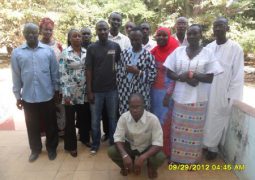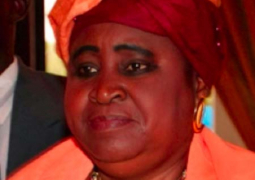Eradicating extreme poverty and hunger is the first of the Millennium Development Goals (MDGs).
However, it is becoming increasing clear that many countries in the world may not meet the target.
In fact, the most difficult challenge facing many countries today is the issue of reducing extreme poverty and hunger.
Some one billion people are said to go to bed hungry every night. This is serious; thus the need for more concerted efforts and commitments on the side of governments and development partners.
With just four years to go to the 2015 deadline to achieve the MDGs, major advances in the fight against poverty and hunger have begun to slow or even reverse, as a result of the global economic and food crises.
The same is true about the health-related MDGs, as most African countries are yet to be on track to achieve these goals.
The Abuja Declaration recognized this as a potential problem ten years ago, highlighting the importance for governments in AU countries to be giving greater weight to health in the allocation of government resources, while at the same time urging donor countries to increase their funding levels.
In the 10 years that have passed, since the Abuja Declaration, there has been progress towards increasing availability of financial resources for health, at least in terms of dollar value.
However, assessments have warned that despite many successes, overall progress has been too slow for most of the targets to be met by 2015.
While sub-Saharan Africa remains the developing region with the highest number of people living in extreme poverty, there are significant achievements made so far in
Many individual countries around the region have recorded impressive gains on specific goals, but two major goals that remain a concern are the health-related and poverty eradication targets.
Nonetheless, we need to work very hard to reduce by half the proportion of people living on less than a dollar a day.
While many hail the progress registered so far in eradicating extreme poverty in
This is because it is a serious issue and, therefore, calls for more programmatic initiatives and strategies.
For instance, to achieve these goals, more community participation is needed in the designing, planning and implementation of programmes and activities.
We also urge the industrialised nations to deliver on their aid commitments to the poorest nations, so as to help them meet the MDG targets.
We, therefore, recommend that civil society organisations should contribute actively in designing policies, delivering services and monitoring progress.



